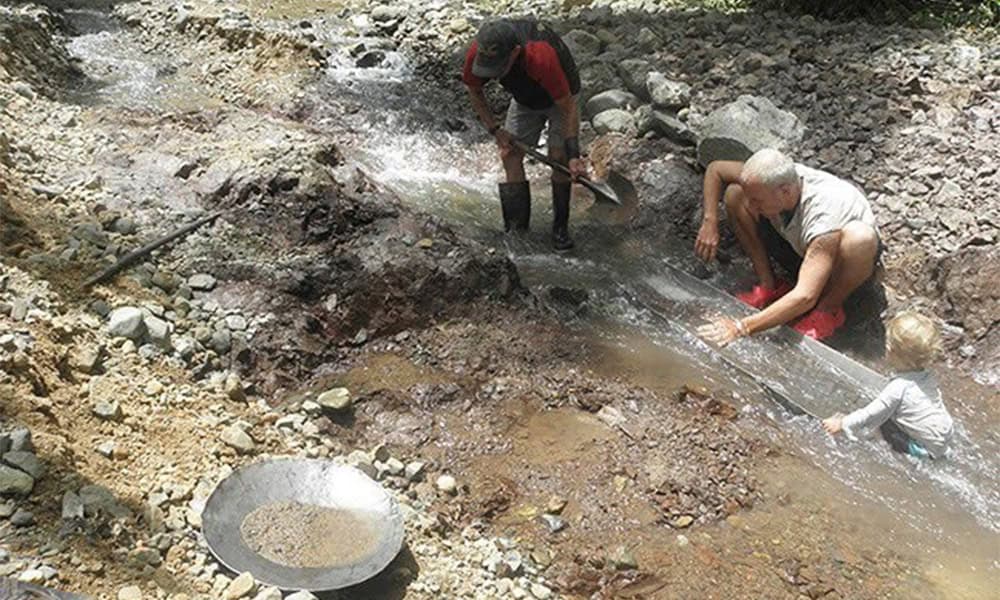Corcovado National Park, one of the most biodiverse places on Earth, is under severe threat from illegal gold mining, an activity that has reached alarming levels and is endangering the park’s delicate ecosystem. This crisis is driven by criminal groups exploiting the remote and dense forests of Corcovado as the perfect cover for their unlawful operations.
Authorities report that each gram of illegally mined gold currently sells for ₡28,000 colones (approximately $52), a lucrative price that has attracted a surge of illegal miners into the area. The high profits have turned this illicit activity into a magnet for those willing to risk the park’s destruction for financial gain.
“We have information that people are working in tunnels inside the National Park using sophisticated equipment, including power plants, power tools to break rocks, and metal detectors,” said Sergio Torres, head of the Prevention, Control, and Protection Program.
Illegal gold mining in Corcovado is not a new issue, but it has evolved into a highly organized operation. Criminal organizations are recruiting workers, often from vulnerable communities, and establishing well-equipped camps deep within the park. These camps allow miners to stay for several days, enabling them to extract significant amounts of gold before relocating to new areas.
“What we are experiencing is worrisome, and we face many limitations—very little support and no public security. We need significant human resources and equipment to tackle this issue,” Torres added.
The scale of the problem is further underscored by the fact that 70% of those arrested in connection with illegal mining activities in Corcovado have previous arrest warrants, according to the Prevention, Control, and Protection Program.
Minister of Security Mario Zamora has emphasized that the illegally extracted gold doesn’t remain in the area. Instead, it is transported to other parts of the country and even to neighboring countries such as Nicaragua and Panama, where it enters international markets.
The environmental damage caused by these criminal activities in Corcovado is incalculable, with vast areas of forest being destroyed and wildlife habitats being irreparably damaged. Immediate intervention is crucial before this unique and irreplaceable ecosystem suffers irreversible harm.






